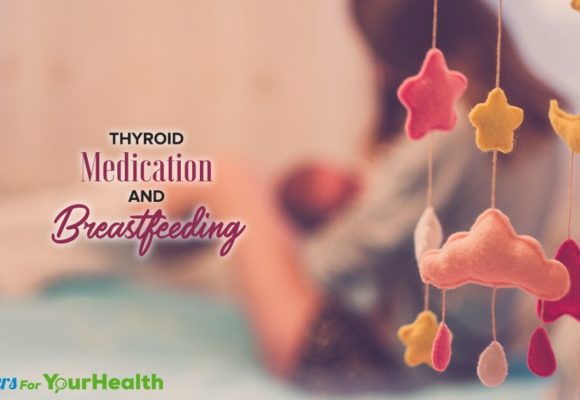1) Grab a FREE copy (Value $14.95) of one of my books Thyroid Symptom Overload
Just pay shipping $7.95 for any US orders. Or, if you want to pay full price plus shipping, order from Amazon :)
2) Take our Thyroid Quiz today and find out what "Thyroid Type" you have
This quiz will help you quickly discover where your symptoms are stemming from.
3) Join Our Thyroid Advocate Membership Site - Natural Thyroid Academy
FREE for a limited time. No credit card required.
4) Work with me and my team privately
Schedule your FREE 15 minute phone consultation and we can find out the best way to help you specifically.
Before getting into the disease that you may have or you think you might have, there is a need to understand what the thyroid is, and what are hypo and hyperthyroidism. Only when you know these conditions will you be able to decipher whether or not you are suffering from one thing or another. So here is a little detail about the thyroid gland.
What is The Thyroid Gland?
It is a butterfly shaped organ under the Adam’s apple in your neck. It is responsible for the production of hormones that take care of the metabolism of your body. It is also responsible for some other vital functioning of the body like breathing etc. The two hormones that the thyroid gland is responsible for are T3 and T4. If the gland does not function properly, it could lead to excretion of either too much or too little hormone and that could mean that the thyroid is under active or over active.
When the thyroid is underactive, the condition is known as hypothyroidism. When the thyroid gland is overactive, it is termed as hyperthyroidism. These are considered to be two of the most commonly occurring thyroid issues and women are highly susceptible to them. The ratio of women to men having thyroid issues is high.
What needs to be understood is that hyper and hypothyroidism may be the result of quite a few thyroid diseases, but are not the only diseases that occur because of a malfunctioning thyroid gland. Thyroid cancer, goiter and abnormal growth within or of the thyroid gland are also frequently occurring thyroid diseases.
Below is a list of all the diseases that are related to thyroid gland;
- Hyperthyroidism: Excessive production of thyroid hormones is known as hyperthyroidism. It mostly leads to Goiters. People suffering from hyperthyroidism tend to eat too much and don’t put on any weight because their metabolism is increased.
- Hypothyroidism: When there is too little quantity of thyroid hormone, than the condition is known as hypothyroidism. It can occur among infants too and is called cretinism. For babies, this can be very dangerous as it can cause mental retardation and abnormal bone formation.
- Goiters: When the thyroid gland becomes enlarged, it is known as a goiter. If the goiter is toxic than it is so because of hyperthyroidism. If not, then it is caused due to iodine deficiency.
- Thyroiditis: When the thyroid becomes inflamed, it gives way to thyroiditis. This mainly happens because of an abnormally functioning thyroid gland because of hyperthyroidism. There are five types and each is treated differently.
- Thyroid Cancers: This type of cancer is becoming more and more frequent these days and is mostly highly treatable with long term survival rates. Of course there are rare types of thyroid cancers where the patient generally lives no more than 1 year. Thyroid cancers are mostly treatable and can happen to anyone at any age but women over 30 are more susceptible.
- Solitary Thyroid nodules: Nodules or an abnormal growth of cells within the thyroid gland are referred to as nodules. They are very, very common and are mostly benign. Studies suggest that more than half the population in US over the age of 30 has them.
These are some of the most commonly occurring thyroid issues. Most of them are related to or cause hyperthyroidism and/or hypothyroidism. What are the symptoms of these conditions? Here is a list.
- An enlarged thyroid which shows as a swelled up neck
- Tiredness or fatigue that is unexplainable
- Weight loss or weight gain without any apparent cause or loss/gain of appetite
- Muscle cramps or tremors
- Diarrhea or constipation
- Memory issues
- Slow or rapid heart rate
- Insomnia
- Anxiety, nervousness and irritability
- Excessive sweating due to sensitivity to hotness
These are the symptoms that show that the patient might be suffering from some kind of thyroid issue. The doctor prescribes blood tests, which check the level of thyroid hormones in the blood. But what if your blood work is absolutely normal and the doctor says that you are not suffering from either hyperthyroidism or hypothyroidism. What could be the problem be?
There are times when blood tests are not the only things that can grant an absolute result. Sometimes your doctor will do another test that will ascertain the fact that what you are suffering from is not hypo or hyperthyroidism. Once that too is out of the way, you will be checked for other thyroid issues like goiter, thyroid cancer, nodular thyroid etc. If those too are not the cause of the symptoms, there are other diseases that have similar signs as those of a malfunctioning thyroid.
Some of the most common diseases that have same signs and symptoms as hyperthyroidism and hypothyroidism are depression, Pertussis, conjunctivitis, Glaucoma, Chronic Fatigue Syndrome, Cirrhosis, common cold and flu, Amenorrhea, seizure disorders, systemic lupus erythematous, dermatitis, Parkinson’s disease, MS, gallbladder disease and lot more.
Only your primary doctor will be able to tell you what steps you need to take in order to diagnose the right condition that you are suffering from. There are some tests and medicines that the doctor will give in order to rule out diseases to reach their final conclusion. The main thing is to see a doctor as soon as possible so that a prognosis can be made and treatment started in a timely manner.
References
- https://www.endocrineweb.com/endocrinology/overview-thyroid
- http://www.umm.edu/health/medical/altmed/condition-symptom-links/conditions-with-similar-symptoms-as-hypothyroidism
- https://www.globalhealingcenter.com/natural-health/10-symptoms-thyroid-problems-doctor-may-miss/








